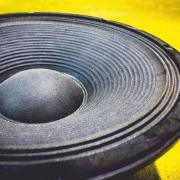BIR Non-Ferrous Metals Division: “No Way Back” Following Transformation in Scrap Trade Flows
According to David Chiao of US-based Uni-All Group Ltd, the main issues affecting non-ferrous scrap businesses at present are the US/China trade war, political instability around the world and a widespread decline in manufacturing, with some countries’ automotive industries recording 10 % production drops over the recent period.
At the same time, scrap metal flows have been “transformed” by factors such as changes in environmental policy, added BIR’s Non-Ferrous Metals Division President in his opening remarks to the body’s meeting in Budapest on October 14, 2019.
Guest speaker Perrine Faye, Global Base Metals Editor at Fastmarkets, argued that these shifts in scrap flows are far from temporary. “A number of investments have been made and so a certain amount of permanent change has occurred, particularly on the copper side,” she stated during a panel debate moderated by Natallia Zholud of the Belarus-based TRM Group.
Murat Bayram of European Metal Recycling Ltd agreed: “There is no way back. We have seen huge investments in the Western World. We need to fasten our seatbelts. Quality, service and reliability are the most important things to focus on to help our industry overcome the turbulence.” Fellow panellist Leopoldo Clemente of LCD Trading SRL in Italy also stressed the increased importance of offering reliability.
Mr Chiao urged everyone in the scrap industry to show “environmental consciousness” in the quality of the material they ship while Divisional Senior Vice President Dhawal Shah of Metco Marketing (India) Pvt Ltd underlined that the recycling industry’s primary responsibility must be to buy and sell “good, clean scrap”. The latter also acknowledged the huge scope for increased scrap consumption within India.
In her guest presentation entitled “How China’s environmental policies and international trade wars are reshaping the global copper and aluminium scrap markets”, Ms Faye insisted that Chinese demand for copper scrap remains “robust” as alternatives such as blister, concentrates and cathodes are expensive. She also highlighted a “very, very strong correlation between copper scrap discounts and the LME price” despite occasional disconnects.
Ms Faye also spoke of a manifest downtrend in aluminium scrap prices, particularly among the less pure grades, and of an uncertain future for secondary aluminium prices owing to the growing adoption of hybrid cars and the move away from diesel engines. She predicted that LME aluminium prices are likely to remain below US$ 1800 per tonne in 2020 but also indicated that the market is “near the bottom”.
Fellow guest speaker Andriy Putilov, Chairman of the Board at MZ Ltd in Ukraine, highlighted his country’s changing approach to exports of non-ferrous scrap – from a ban in 1999 and a 30 % duty in 2008 to the position today where the export duty to EU countries is 7 % and to other countries 15 %.
He also alluded to more promising prospects for Ukraine’s secondary aluminium industry through the creation of joint ventures and parliamentary moves towards achieving more favourable conditions for the recycling industry. Since 2017, he pointed out, there has been zero EU import duty on secondary aluminium alloys from Ukraine.
Source: Bureau of International Recycling aisbl





